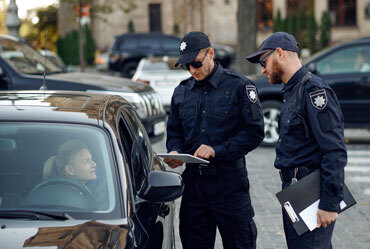Search

The first-time speeding ticket conviction in New York results in fines starting at $90 and increasing to a maximum of $600. Drivers facing three speeding ticket charges in New York will pay between $45 to $150 if they go 1 to 10 mph over the limit while those who exceed the limit by 11 to 30 mph will be billed between $90 to $300 and finally, drivers who exceed 31 mph or more will pay $180 to $600.
A financial surcharge of $88 or $93 from the state comes on top of the speeding ticket fee no matter the specific location of the driver.
Cars will receive 3 points from the New York DMV for being over the speed limit by 1 to 10 mph yet the system will add 4 points for exceeding 11 to 20 mph over the limit as well as 6 points for 21 to 30 mph over the limit and 8 points for 31 to 40 mph over the limit while 11 points will be issued when a driver exceeds 41 mph above the legal speed limit.
Insurance organizations are permitted to elevate their rates for drivers when their driving record shows specific points. One single speeding ticket produces substantial rate increases in auto insurance. A traffic violation often results in a 30 percent increase of what drivers pay for their auto insurance.
Drivers faced with six or more points from violations in the 18-month period will have to pay the Driver Responsibility Assessment fee (DRA). This penalty costs $300. Each additional point beyond six will result in a $75 charge from DMV for the driver. DMV receives this specific payment which operates independently from court fees including the ticket fines. Councils will charge elevated fines to offenders who commit their second offense of speeding or travel at dangerous speeds in work zones.
NY Speeding Violation Total Fine, Surcharge & DRA Points Speeding 1-10 MPH over limit $133 – $238 3 points Speeding 11- 20 MPH over limit $178 – $388 4 points Speeding 21- 30 MPH over limit $478 – $688 6 points Speeding 31-40 MPH over limit $718 – $1,138 8 points Speeding 41+ MPH over limit $943 – $1,363 11 points.
Democratic citizens should avoid attempting fighting their own speeding tickets in court. Object detection by most law enforcement staff as well as prosecutors results in obtaining statements leading to a conviction. Anyone including innocent honest drivers can make mistakes when discussing their case which would lead to traffic offense convictions in court. Traffic ticket attorneys who possess experience and skills know exactly how to handle legal questioning while building the driver’s position to decrease possible points or make a completely clean break. Drivers searching for an attorney as their defense in traffic court need it because the legal process in this domain differs significantly from criminal cases. Criminal cases usually require prosecution to demonstrate either defendant awareness about their actions being unlawful or intentional criminal intent.
Strict liability rules govern the operations of traffic court to the extent that criminal intent is not a requirement for prosecution. The law of strict liability does not require defendants to demonstrate any specific mental state. A driver can face speeding charges at any time even when they show ignorance about their speed or lack the intent to drive fast. Drivers who claim unawareness about the 55 miles per hour speed limit on the New York Thruway will not receive a ticket dismissal. Judging the driver’s speeding behavior only depends on actual evidence of exceeding the speed limit. According to the laws there exists no acceptable reason which would make speeding permissible. The practice of giving any excuse such as needing to use the bathroom or impending childbirth does not typically convince law enforcement officers or judges to dismiss a traffic violation.
To overcome New York speeding tickets, it is essential to understand both effective defenses from previous cases and identify the related difficulties.